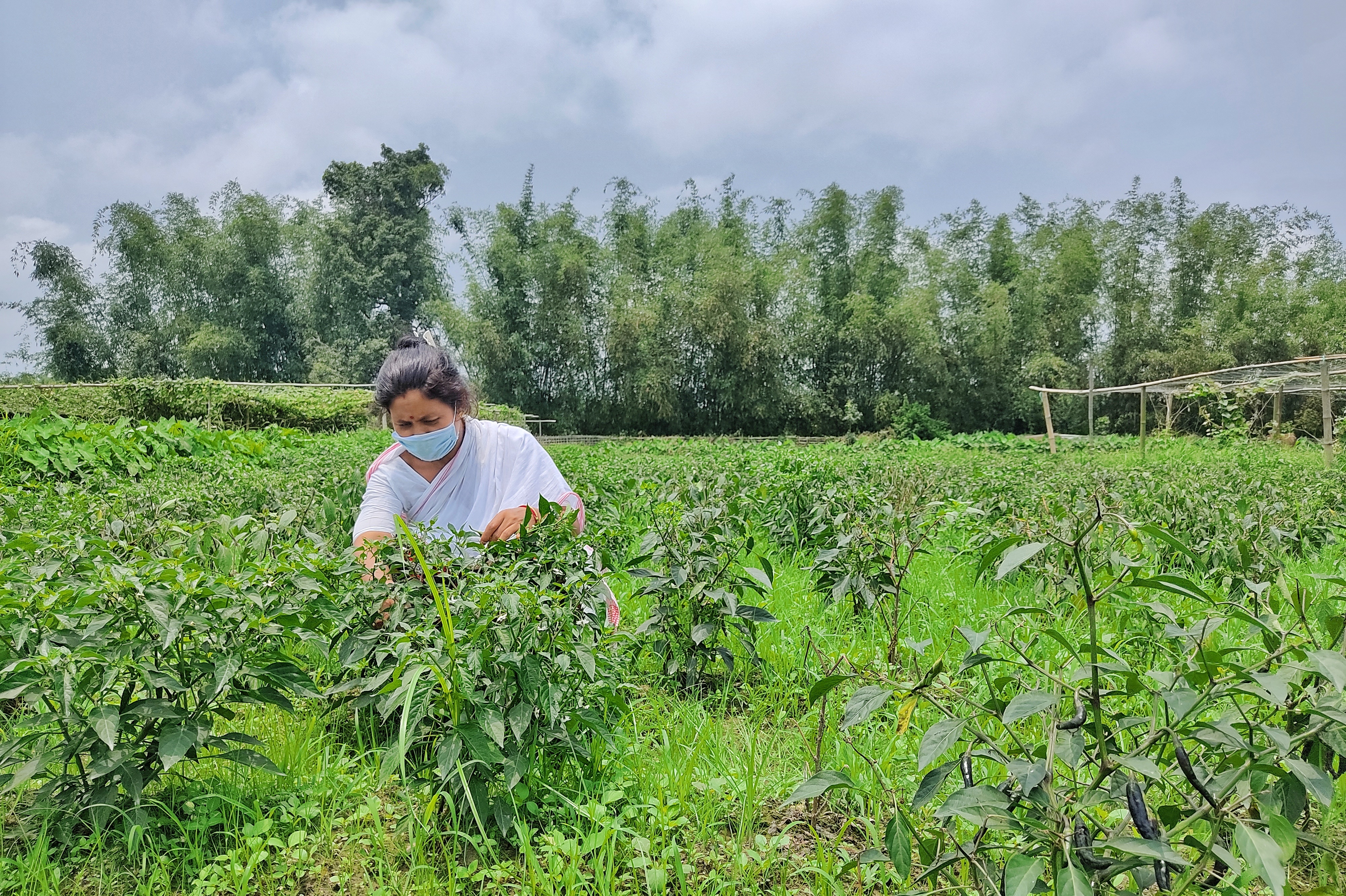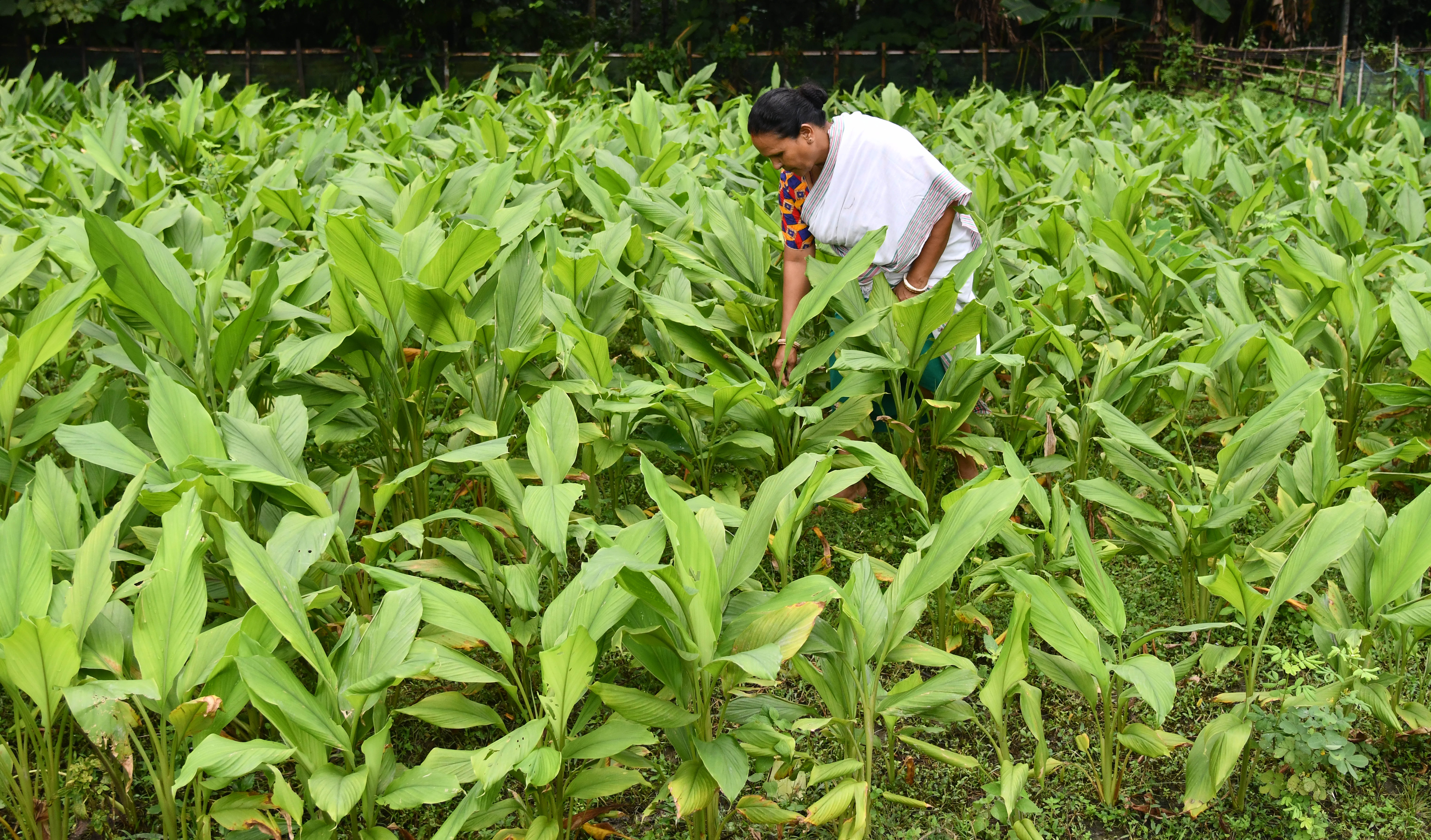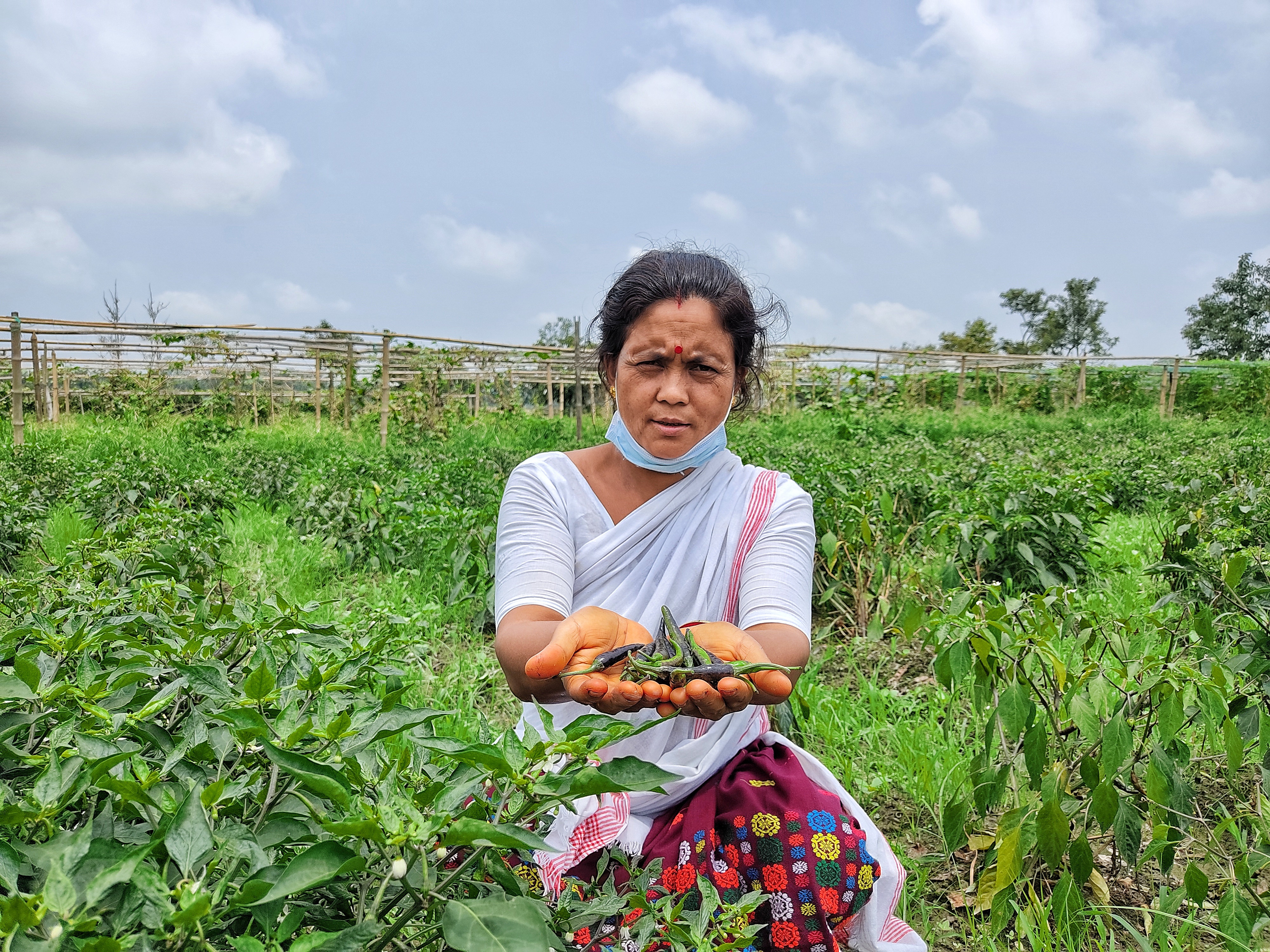Assam’s nutritional gardens see green recovery from the COVID-19 pandemic
August 4, 2022

A farmer attends to her backyard grown crops in Assam.
Women in the rural villages of Assam— gateway to India’s Northeast, have found an indigenous solution to some of the problems arising out of the COVID-19 pandemic-right in their backyard.
Small households can be seen toiling away in their homesteads, sowing, harvesting vegetables that will feed their families and augment family incomes.
Assam, an agrarian state with huge potential has thousands of rural families with small cultivable holdings of about one-third of an acre. Traditionally, the men in the families find employment as daily wagers in bigger farms or establishments in urban areas within or outside the state, while women manage the household and try to supplement the family income through activities like rearing poultry livestock or growing vegetables.
The pandemic has caused many of these income sources to dry up. Jobs have been lost and income from farming has dived as sale of produce dropped.
“My husband is a daily wage earner, if he goes to work, we get to feed our stomachs. My son who was working in Goa had to return. So, with no work available, it was hard to survive during the pandemic. We were finding it very hard to feed the family”, says Anjana Dutta Baruah from Sajanavita village of Bongaigaon district.
Since the pandemic started, a lot of homemakers like Anjana faced two major problems: juggling home finances and ensuring nutritional needs of the family.

A farmer attends to her backyard grown crops in Assam.
The United Nations Development Programme (UNDP) partnered with the Assam State Rural Livelihoods Mission (ASRLM) in September 2020, as part of socio-economic response to COVID-19 crisis. The objective of this partnership was to start a program on promoting crops with high nutrition value suited for local agro-climatic conditions and with a potential to offer higher return on investment within short time duration.
The intervention, started in the districts of Bongaigaon, Goalpara and Majuli was possible with the help of Seven Sisters Development Assistance (SeSTA), an NGO working in these districts to create Self Help Groups (SHGs) and village organizations.
A total of 350 households were selected spread across 15 villages. Families belonging to vulnerable sections of the society, who were the most affected by the pandemic and saw their source of livelihood shrinking were among those selected.
The intervention, which lasted for six months till March 2021 provided technical assistance, including sourcing of seeds, land preparation, demonstration to grow vegetables in defined layouts, orientation on seasonal crop rotation, nursery management, sorting and grading of crops. Farmers were provided the required equipment like rotavator, wheel hoe, etc. and educated on vermicomposting and other organic inputs and manure usage.

A farmer tends to her turmeric crop in Assam.
The women chose to grow vegetables like tomato, brinjal, sweet potatoes, bananas, a variety of greens, etc. and were surprised with the high output from a small patch of land.
To establish a link to the market, three agro-hubs were established, which were involved in processing, packaging and marketing of different products, helping the SHGs gain access to markets and utilize the power of the collective to get better prices.
“Our nutrition garden has helped us support ourselves, providing different varieties of vegetables. Without it we would have to rely on rice and salt. The income even though little was very helpful as there was no other source available,” says Anjana as she beams at the patches of vegetables carefully laid out across her backyard.
The results were encouraging . The 350 households earned a total of INR 17 lakhs (US$ 23000) from sales of the vegetables in the six-month period (September 2020-March 2021), with some households making close to INR 10,000 (US$ 135) for their efforts. Also, they consumed a portion of their output, which added variety and nutrition to their daily food intake.
. The 350 households earned a total of INR 17 lakhs (US$ 23000) from sales of the vegetables in the six-month period (September 2020-March 2021), with some households making close to INR 10,000 (US$ 135) for their efforts. Also, they consumed a portion of their output, which added variety and nutrition to their daily food intake.

Chenimai Doley plucking harvest of green chillies from her nutrition garden.
Women farmers like Chenimai Doley of Nayabazar village in Ujani Majuli block have truly looked within and found the courage to face challenges posed by the pandemic. Chenimai’s husband lost his part-time job at the electricity department and her daughter studying at a private school had to drop out.
But things are getting better for Chenimai now as she hums and smiles her way through the harvest, “We don’t spend money on buying vegetables anymore. Instead, we have earned some. We have also enrolled our daughter in a new school now.”
Restoring land has brought about economic resilience, increased income and food security in the rural households in Assam. It is helping biodiversity to recover— a small step but immense contribution to lessen the impacts of climate change and underpin a green recovery from the COVID-19 pandemic.

 Locations
Locations